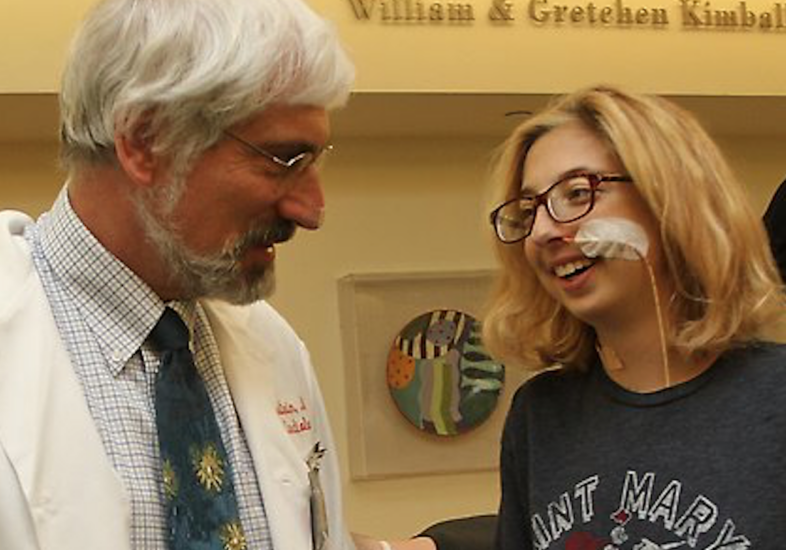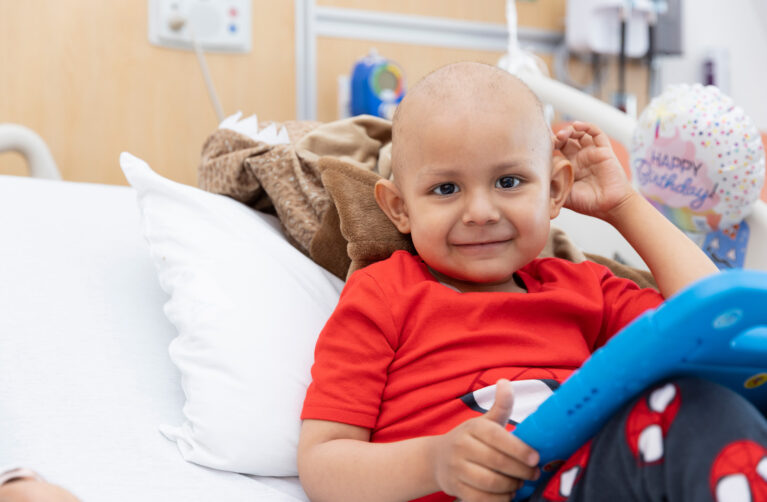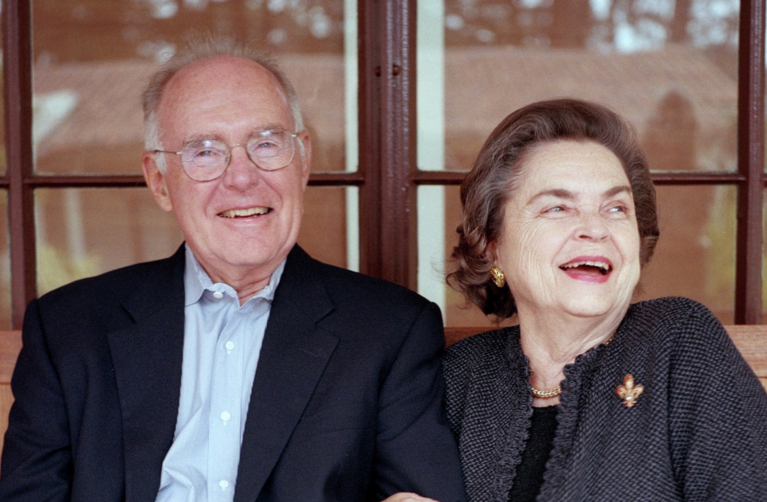Amanda Sechrest dropped onto her bed, exhausted after a late night of studying for finals at Saint Mary’s College of California. For some reason, on this particular night in May 2012, the first-year student felt compelled to keep her phone’s ringer on, instead of turning it on silent.
That night she received a call from Lucile Packard Children’s Hospital Stanford that would save her life. A donor heart and liver were available for the transplant she desperately needed.
“I was speechless,” she says of that moment, 10 years ago. “They said, ‘Get to Packard Children’s as fast as you can.’”
Amanda was born with one heart ventricle, rather than two. A type of open-heart surgery called the Fontan procedure had prolonged her life by two decades, but now cardiac failure and associated liver dysfunction put her on the transplant wait list.
Heart-liver transplant surgery is a complex, eight- to 12-hour procedure requiring phenomenal surgical expertise and precise choreography between the liver and heart teams, who operate at the same time.
“The liver team is trying to make sure that the liver does well, and we’re trying to make sure the heart does well, so we have to find the right balance points,” says cardiologist David Rosenthal, MD, who was an integral member of Amanda’s care team for most of her life.
Because heart-liver transplants are so complex, most children’s hospitals are unable to perform them. Fortunately for Amanda and patients like her, Packard Children’s Hospital has performed more than 15 heart-liver transplants over the past three decades. It is a national leader for pediatric organ transplantation and has been recognized for its outstanding combination transplant outcomes.
Forming Special Connections
Like the surgery itself, recovery from a heart-liver transplant is complex. So Amanda met weekly with her multidisciplinary medical team, who understood her needs, provided support, and became like family. They lifted her spirits when she faced setbacks and spent most of the next two years in the hospital, watching some other patients return home to resume normal activities while she faced a long recovery. The team was determined to get Amanda strong, back to good health, and enjoying life.
“Amanda formed a special connection with her nurses and doctors,” says Lisa Hofmann Morgan, Amanda’s mom. “I do not think it would have been such a positive outcome without their care and love, commitment, and passion for their important work.”
During her stay, Amanda attended the Hospital School prom, a special night for patients of all ages and their families. She also found comfort in our hospital’s Forever Young Zone, a playroom where she could interact with child life specialists, who provided fun activities to help her express herself and find joy in the midst of hospitalization. That’s where she connected with Sierra, Lindsey, and Gage Bingham—siblings who also had heart transplants.
“They were just the sweetest family and included me in everything,” Amanda says.
Today, Amanda, 30, lives in Idaho and is counting down the days to another milestone: her wedding! She loves hiking with her fiancé, Danny, and still exchanges messages with members of her care team and the Binghams. “I am excited for that next life chapter,” she says, “and hopefully having kids.”
Because they appreciated the care that Amanda received, her family made a gift to support pediatric transplant research at Packard Children’s Hospital. Now on the 10th anniversary of Amanda’s transplant, Lisa hopes other donors will join them.
“As we reach this milestone,” Lisa says, “the future is indeed bright!”




